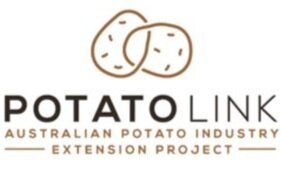Potato mop-top virus detected in Tasmania
AUSVEG and Biosecurity Tasmania are alerting growers and industry stakeholders to the detection of Potato mop-top virus (PMTV) in Northwest Tasmania. This marks the first time this virus has been found in Australia.
Source: Department of Natural Resources and Environment Tasmania
Biosecurity Tasmania is actively managing the situation with an Incident Management Team (IMT). They are conducting surveillance, diagnostics, and tracing operations to determine the extent of the virus's spread and its source. Control measures have been put in place to manage the movement of potentially infected potatoes and soil.
What you need to know
No Food Safety Risk: PMTV and powdery scab (Spongospora subterranea) do not pose any food safety or human health risks. Potatoes remain safe to eat.
How it Spreads: PMTV is a plant virus that primarily impacts potato quality and development. It is most commonly spread by the soil-borne pathogen that causes powdery scab.
Potato mop-top virus detection information sheet
Industry Collaboration: Biosecurity Tasmania is working with industry and other government jurisdictions to assess the feasibility of eradication and to inform their ongoing response.
What Can You Do?
Implement and maintain good biosecurity practices on your property, including a dedicated high-pressure wash station for gear, clothing, machinery and equipment.
Limit the movement of contractor vehicles within production areas and paddocks whenever possible.
For more information on some simple steps you can take to protect your farm or property, check out this resource:
Stay Vigilant and Report Any Signs of Disease
We urge all growers and visitors on-farm to remain vigilant. If you notice any unusual signs of disease in potato plants or tubers, please report it immediately.
You can also contact Biosecurity Tasmania at biosecurity.tasmania@nre.tas.gov.au or by calling 1300 368 550.
Call the Exotic Plant Pest Hotline at 1800 084 881.
For the most up-to-date information, please refer to the official Biosecurity Tasmania updates:
Biosecurity Advisory:https://biosecurityadvisory.nre.tas.gov.au/Pages/default.aspx
Biosecurity Alert: https://nre.tas.gov.au/biosecurity-tasmania/current-biosecurity-alerts
We also recommend signing up for direct advisories from Biosecurity Tasmania here: https://biosecurityadvisory.nre.tas.gov.au/Pages/Subscribe.aspx
AUSVEG will continue to share updates as more information becomes available. If you have questions regarding this biosecurity issue, please don't hesitate to reach out.

